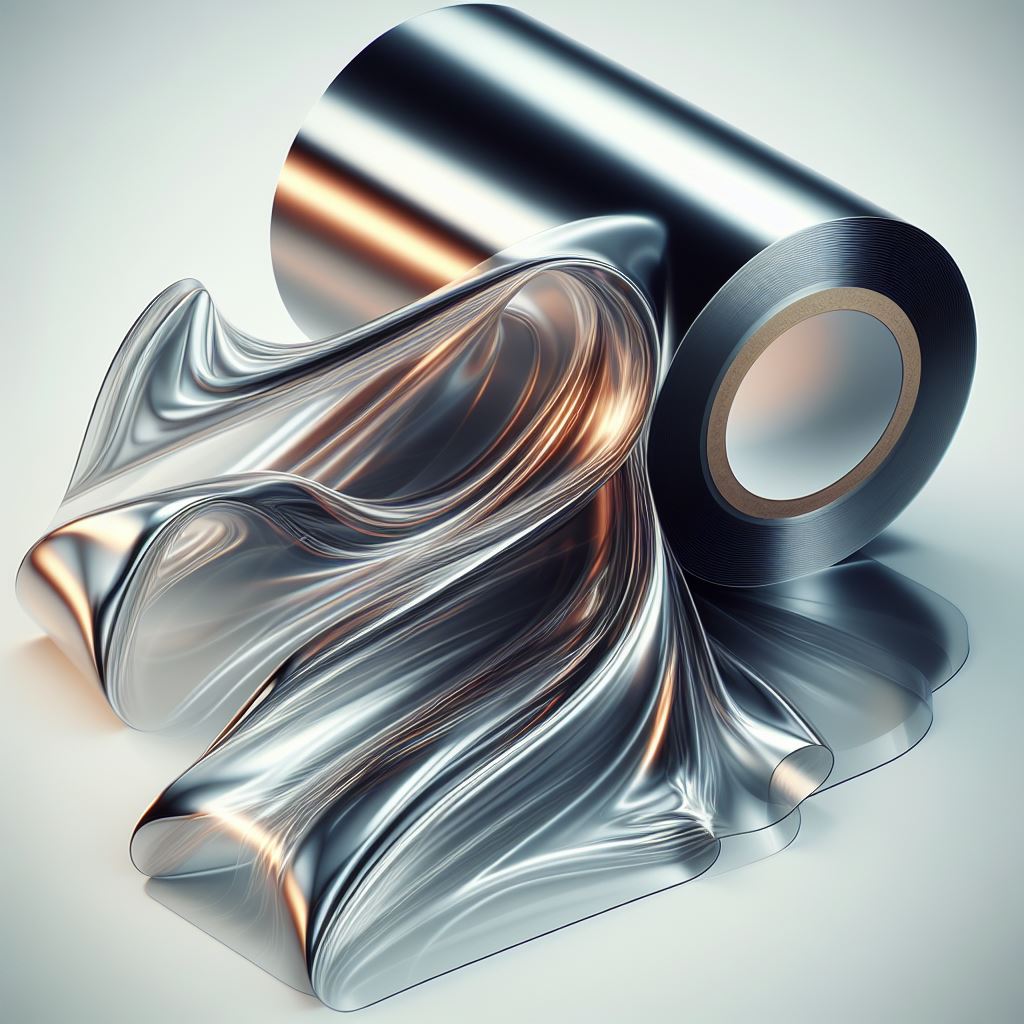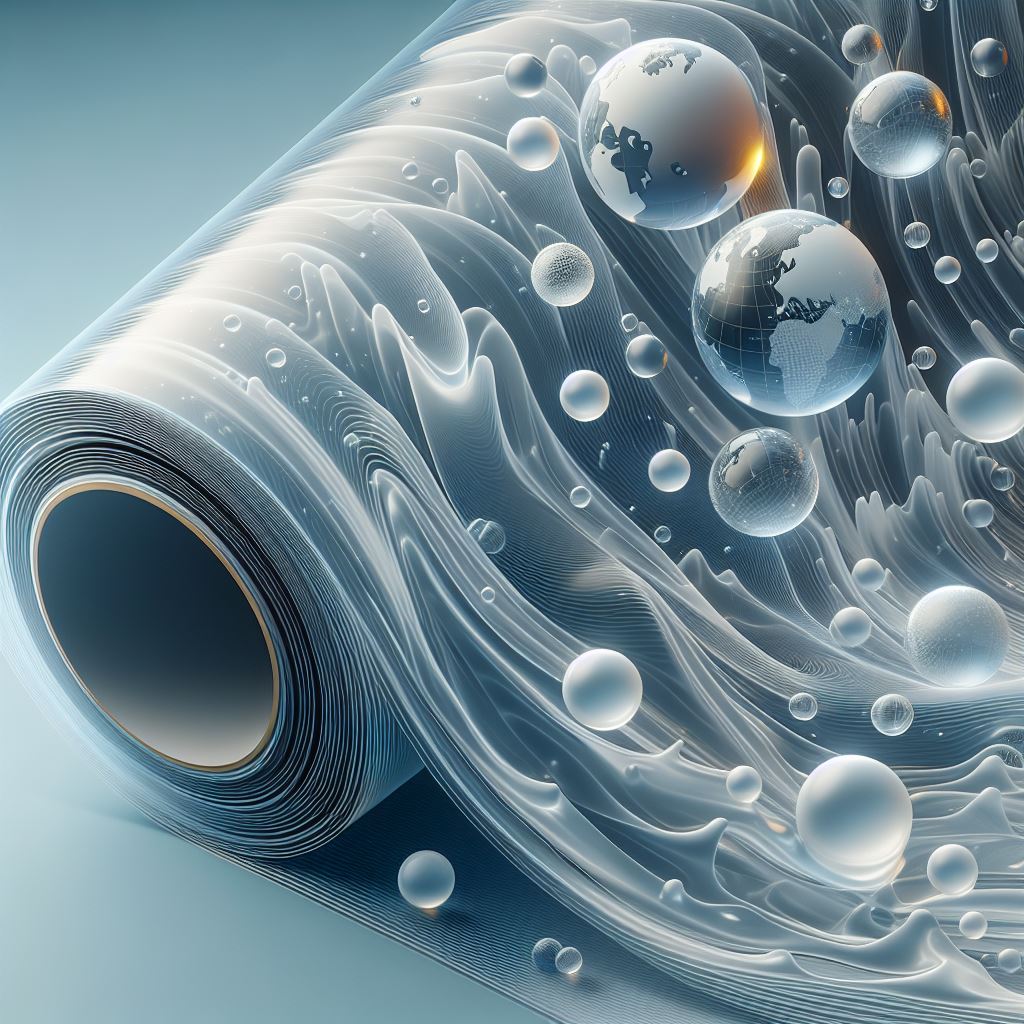Chlorinated Polyvinyl Chloride Resin, also known as CPVC resin, is a versatile material that offers numerous benefits in the manufacturing industry. This article explores the advantages of using CPVC resin, its applications, and environmental considerations.
Key Takeaways
- CPVC resin provides enhanced chemical resistance, making it suitable for use in corrosive environments.
- It offers improved fire resistance compared to traditional PVC resin, making it a safer choice for various applications.
- CPVC resin exhibits higher temperature resistance, allowing it to withstand elevated temperatures without deforming or degrading.
- Common applications of CPVC resin include piping systems, wire and cable insulation, and coatings and adhesives.
- CPVC resin is recyclable and has a lower environmental impact compared to other materials, and it also meets health and safety standards.
What is Chlorinated Polyvinyl Chloride Resin?
Chemical Composition
Chlorinated Polyvinyl Chloride Resin, also known as CPVC resin, is a type of thermoplastic material. It is derived from polyvinyl chloride (PVC) through a chlorination process. The chlorination process involves replacing some of the hydrogen atoms in the PVC molecule with chlorine atoms, resulting in a more durable and heat-resistant material. CPVC resin has a higher chlorine content compared to PVC, which enhances its chemical resistance and thermal stability.
Manufacturing Process
The manufacturing process of Chlorinated Polyvinyl Chloride Resin, also known as CPVC, involves several steps. First, the raw CPVC material is melted to a liquid state. Then, it is shaped into the desired form using a die. This process is called CPVC extrusion. CPVC extrusion is commonly used in industrial applications to create various products.
Advantages of Chlorinated Polyvinyl Chloride Resin

Enhanced Chemical Resistance
Chlorinated Polyvinyl Chloride Resin offers enhanced chemical resistance compared to other materials. This makes it an ideal choice for applications where exposure to harsh chemicals is a concern. The resin’s ability to withstand corrosive substances and maintain its structural integrity over time ensures the longevity and reliability of products made with it.
In addition to its chemical resistance, Chlorinated Polyvinyl Chloride Resin also provides excellent resistance to UV radiation, moisture, and extreme temperatures. This further enhances its durability and makes it suitable for outdoor applications.
To illustrate the chemical resistance of Chlorinated Polyvinyl Chloride Resin, here is a table comparing its performance against common chemicals:
| Chemical | Resistance Level |
|---|---|
| Acid | High |
| Alkali | High |
| Solvent | Medium |
It is important to note that the actual performance may vary depending on the specific formulation and processing conditions.
Tip: When using Chlorinated Polyvinyl Chloride Resin in applications with exposure to chemicals, it is recommended to consult the manufacturer’s guidelines and conduct thorough testing to ensure compatibility and performance.
Improved Fire Resistance
Chlorinated Polyvinyl Chloride Resin (CPVC) offers enhanced fire resistance compared to traditional PVC. CPVC is inherently fire-resistant and has a low flame spread rating, making it a safer choice for certain applications. This property is especially important in industries where fire safety is a top priority, such as construction and electrical. CPVC’s improved fire resistance can help prevent the rapid spread of flames and reduce the risk of fire-related accidents.
In addition to its fire-resistant properties, CPVC also maintains its structural integrity at high temperatures. This makes it suitable for applications that involve exposure to elevated temperatures, such as hot water pipes and industrial equipment. CPVC’s ability to withstand high temperatures without deforming or melting adds to its overall safety and reliability.
Overall, the improved fire resistance of CPVC makes it a valuable material in various industries, providing an added layer of protection and peace of mind.
Higher Temperature Resistance
Chlorinated Polyvinyl Chloride Resin offers enhanced resistance to higher temperatures, making it suitable for applications in environments with elevated heat levels. This unique property allows the resin to maintain its structural integrity and performance even under extreme temperature conditions. Whether it’s in piping systems, wire and cable insulation, or coatings and adhesives, CPVC resin ensures reliable and durable performance in high-temperature settings.
Additionally, CPVC resin exhibits excellent dimensional stability at elevated temperatures, minimizing the risk of deformation or warping. This characteristic is particularly important in applications where precise measurements and tight tolerances are required. The ability of CPVC resin to withstand higher temperatures without compromising its physical properties makes it a preferred choice in various industries.
In summary, the higher temperature resistance of Chlorinated Polyvinyl Chloride Resin provides enhanced durability and reliability in demanding environments, making it an ideal material for applications that involve elevated heat levels.
Applications of Chlorinated Polyvinyl Chloride Resin

Piping Systems
Chlorinated Polyvinyl Chloride (CPVC) resin is widely used in piping systems for both potable and industrial applications. CPVC pipes are formed by extrusion or injection molding using oxidized polyvinyl chloride resin as the main raw material. The addition of chlorine to the PVC resin enhances its chemical resistance, making CPVC pipes suitable for conveying a wide range of fluids, including corrosive chemicals. CPVC pipes also have improved fire resistance compared to traditional PVC pipes, making them a safer choice for applications where fire hazards are a concern. Additionally, CPVC pipes have higher temperature resistance, allowing them to withstand hot fluids without deformation or degradation.
Wire and Cable Insulation
Wire and cable insulation is one of the key applications of Chlorinated Polyvinyl Chloride Resin (CPVC). CPVC offers excellent electrical insulation properties, making it an ideal choice for protecting wires and cables from electrical currents and environmental factors. The high temperature resistance of CPVC ensures that the insulation remains effective even in demanding conditions.
In addition to its electrical insulation properties, CPVC also provides enhanced fire resistance. This is crucial for wire and cable insulation as it helps prevent the spread of fire in case of a short circuit or other electrical faults. CPVC’s fire resistance properties make it a reliable choice for ensuring the safety of electrical systems.
To summarize, CPVC resin is widely used in wire and cable insulation due to its excellent electrical insulation properties, high temperature resistance, and enhanced fire resistance.
Coatings and Adhesives
Chlorinated Polyvinyl Chloride Resin is widely used in the manufacturing of coatings and adhesives. Its excellent chemical resistance and durability make it an ideal choice for various applications in this industry. The resin provides a strong bond between different materials, ensuring the longevity and reliability of the coatings and adhesives.
In addition, the enhanced chemical resistance of Chlorinated Polyvinyl Chloride Resin allows the coatings and adhesives to withstand harsh environments and corrosive substances. This property ensures that the protective layer remains intact, providing long-lasting protection to the underlying surfaces.
Moreover, the improved fire resistance of the resin adds an extra layer of safety to the coatings and adhesives. It reduces the risk of fire spreading and minimizes the potential damage in case of a fire incident.
Furthermore, Chlorinated Polyvinyl Chloride Resin exhibits higher temperature resistance, making it suitable for applications that involve exposure to elevated temperatures. This property ensures that the coatings and adhesives maintain their integrity and performance even under extreme heat conditions.
In summary, Chlorinated Polyvinyl Chloride Resin offers numerous advantages for the manufacturing of coatings and adhesives. Its chemical resistance, fire resistance, and temperature resistance properties make it a reliable and versatile material for various applications in this industry.
Environmental Considerations
Recyclability
CPVC resin is highly recyclable, making it an environmentally friendly choice for manufacturers. Recycling PVC resin helps mitigate the environmental impact of PVC waste, which takes decades to decompose in landfills. By recycling PVC resin, manufacturers can reduce the amount of waste sent to landfills and conserve natural resources.
Additionally, the recycling process for CPVC resin is energy-efficient, further reducing its environmental footprint.
To promote the recycling of CPVC resin, manufacturers can collaborate with recycling facilities and educate consumers about the importance of recycling PVC products.
Health and Safety
When it comes to health and safety considerations, it is important to address the potential risks associated with the use of Chlorinated Polyvinyl Chloride Resin (CPVC). One key concern is the release of vinyl chloride, which is a base component of CPVC and is known to be harmful to humans and other living things. It is important to handle CPVC products with care and avoid burning them, as this can produce hydrochloric acid and other hazardous byproducts. Proper ventilation and personal protective equipment should be used when working with CPVC to minimize exposure to harmful substances.
Conclusion of Chlorinated Polyvinyl Chloride Resin
In conclusion, the use of Chlorinated Polyvinyl Chloride Resin in manufacturing offers numerous benefits. It provides enhanced durability, chemical resistance, and fire retardancy, making it an ideal choice for various applications. Additionally, its low cost and ease of processing make it a cost-effective solution for manufacturers. With its versatility and reliability, CPVC resin is a valuable material that can greatly improve the quality and performance of manufactured products.
Frequently Asked Questions
What is the chemical composition of Chlorinated Polyvinyl Chloride Resin?
CPVC resin is composed of polyvinyl chloride (PVC) that has undergone a chlorination process. The chlorination process replaces some hydrogen atoms in the PVC molecule with chlorine atoms.
What is the manufacturing process of Chlorinated Polyvinyl Chloride Resin?
The manufacturing process of CPVC resin involves the chlorination of polyvinyl chloride (PVC) using a chlorine gas or a chlorine-containing compound. The chlorination process can be conducted through either a batch or continuous process.
What are the advantages of using Chlorinated Polyvinyl Chloride Resin?
CPVC resin offers several advantages, including enhanced chemical resistance, improved fire resistance, and higher temperature resistance. These properties make it suitable for various applications in manufacturing.
What is enhanced chemical resistance?
Enhanced chemical resistance refers to the ability of CPVC resin to withstand exposure to a wide range of chemicals without degradation. This property makes it suitable for use in corrosive environments.
What is improved fire resistance?
Improved fire resistance means that CPVC resin has a higher resistance to ignition and combustion compared to regular PVC. It is less likely to contribute to the spread of fires.
What is higher temperature resistance?
Higher temperature resistance means that CPVC resin can withstand higher temperatures without deforming or losing its mechanical properties. It has a higher heat tolerance compared to regular PVC.
PVC Raw Material: Unveiling The Secrets For Top-Notch Production






Pingback: PVC SG5: What You Need to Know - Safe Climber Overseas Pvt. Ltd.